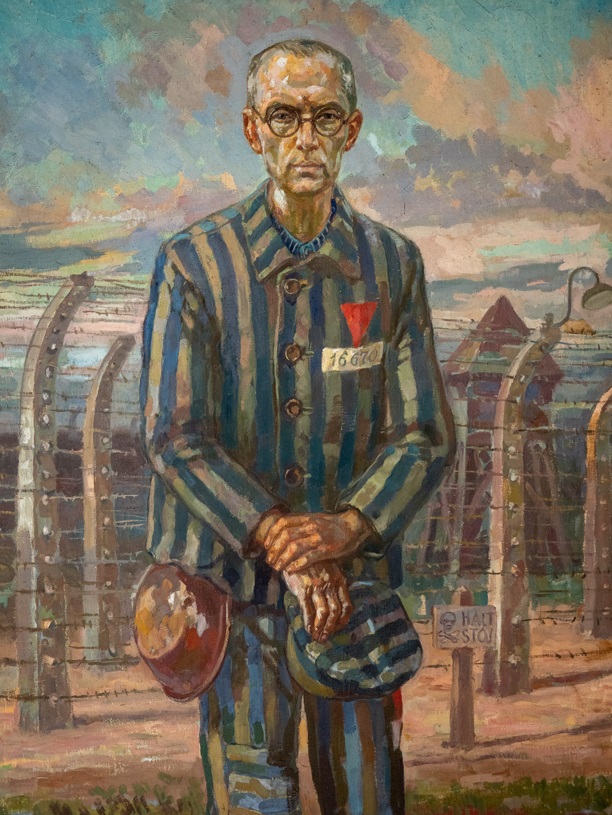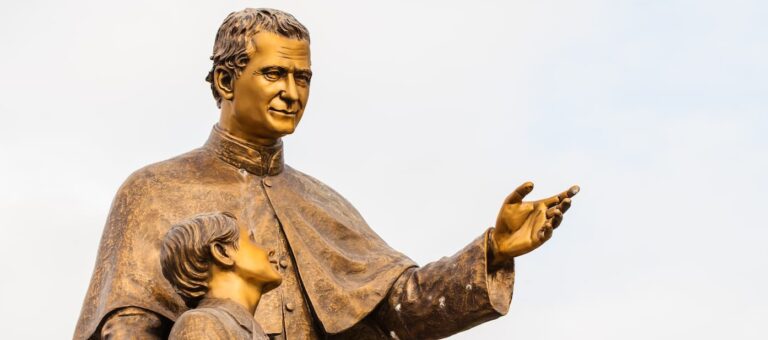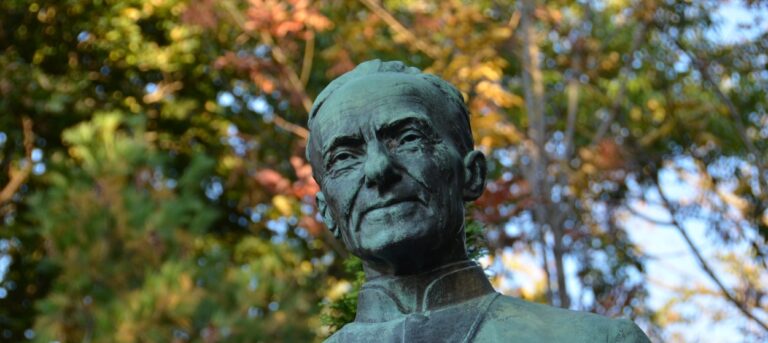
ST. MAXIMILIAN KOLBE

In a world increasingly fractured by conflict and unrest, we yearn for role models to point us beyond the chaos and toward lasting hope. Some people have in fact revealed to us the potential of the human spirit, what it’s capable of, when upheld by the grace of God. In doing so, they’ve reminded us that, in God’s creation, the best is yet to come.
One such person was a Polish Franciscan friar who offered his life for a stranger in Auschwitz. Born in 1894, Raymund Kolbe was a quiet, gentle boy. At sixteen, he entered the Conventual Franciscans, taking the name Maximilian after the early Christian martyr. His devotion to Mother Mary deeply shaped his life.
Kolbe understood the power of the media long before the digital age. He used books, pamphlets, articles, and radio broadcasts to spread faith and hope in Poland in the service of God.
The Nazi invasion of Poland in 1939 didn’t stop him. Even under threat, he continued his mission, which led to his arrest and deportation to Auschwitz. It’s there that his heroism shone. When ten men were sentenced to death by slow starvation in retaliation for an escape, one cried, “My wife! My children!” Kolbe stepped forward to take his place. For weeks afterwards, he gave up his own meager supply of bread to feed the others awaiting death, led prayer and lifted their spirits as starvation closed in. In the end, he died with a final prayer: “Ave Maria!”
What does this martyr say to our 2025 world of division, injustice and anxiety? Here are four takeaways:
- Instead of despairing, Kolbe’s commitment to God teaches us that handing over our fears to him produces inner strength. Even small acts of surrender remind us that we’re not alone.
- Kolbe found inner peace not by looking for it, but by focusing on others, even strangers, enough to suffer for them. In our neighborhood, we can each do our small part and volunteer at a hospital, coach a child’s soccer team, or help out at a food bank. I believe the meaning of life is in there somewhere.
- Technology can be used to express religious views and comfort others. Today’s equivalent might be the social media. You don’t need a Hollywood production standard, just sincerity.
- Even in the darkness of Auschwitz, Kolbe’s light never dimmed. Replacing despair with divine light transforms how we live and love.
Maximilian Kolbe’s heroism began long before Auschwitz. We too can walk such a path, step by step, in our neighborhoods, online, and through everyday struggles. His example calls us to pour ourselves out for others. Any selfless act speaks louder, and carries more hope for the world, than any political speech.
In these divided times, may we pray for the courage to follow Kolbe’s humble example in our families, workplaces and communities – because even death cannot extinguish the flame of love.
Eugene Aucoin is a retired human resources director and university professor. He spoke around the world about nurturing human potential, but his passion is sharing his love for the teachings of Jesus. His first book Has Science Killed God? won Asia’s best Catholic book of the year in theology in 2020. His latest book, with Novalis, is The Beatitudes: Eight Steps to Inner Peace and Happiness. Eugene also gives seminars about faith.


